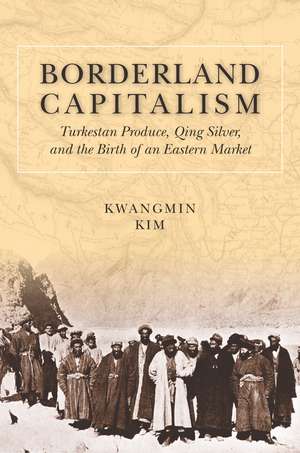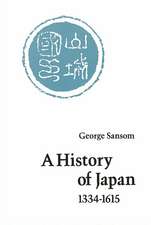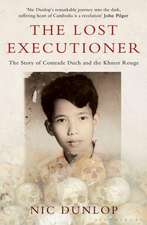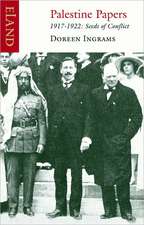Borderland Capitalism: Turkestan Produce, Qing Silver, and the Birth of an Eastern Market
Autor Kwangmin Kimen Limba Engleză Hardback – 18 oct 2016
Scholars have long been puzzled by why Muslim landowners in Central Asia, called begs, stayed loyal to the Qing empire when its political legitimacy and military power were routinely challenged. Borderland Capitalism argues that converging interests held them together: the local Qing administration needed the Turkic begs to develop resources and raise military revenue while the begs needed access to the Chinese market.
Drawing upon multilingual sources and archival material, Kwangmin Kim shows how the begs aligned themselves with the Qing to strengthen their own plantation-like economic system. As controllers of food supplies, commercial goods, and human resources, the begs had the political power to dictate the fortunes of governments in the region. Their political choice to cooperate with the Qing promoted an expansion of the Qing's emerging international trade at the same time that Europe was developing global capitalism and imperialism. Borderland Capitalism shows the Qing empire as a quintessentially early modern empire and points the way toward a new understanding of the rise of a global economy.
Drawing upon multilingual sources and archival material, Kwangmin Kim shows how the begs aligned themselves with the Qing to strengthen their own plantation-like economic system. As controllers of food supplies, commercial goods, and human resources, the begs had the political power to dictate the fortunes of governments in the region. Their political choice to cooperate with the Qing promoted an expansion of the Qing's emerging international trade at the same time that Europe was developing global capitalism and imperialism. Borderland Capitalism shows the Qing empire as a quintessentially early modern empire and points the way toward a new understanding of the rise of a global economy.
Preț: 519.02 lei
Nou
Puncte Express: 779
Preț estimativ în valută:
99.32€ • 103.90$ • 82.50£
99.32€ • 103.90$ • 82.50£
Carte tipărită la comandă
Livrare economică 02-16 aprilie
Preluare comenzi: 021 569.72.76
Specificații
ISBN-13: 9780804799232
ISBN-10: 0804799237
Pagini: 312
Dimensiuni: 152 x 229 x 23 mm
Greutate: 0.54 kg
Editura: Stanford University Press
Colecția Stanford University Press
ISBN-10: 0804799237
Pagini: 312
Dimensiuni: 152 x 229 x 23 mm
Greutate: 0.54 kg
Editura: Stanford University Press
Colecția Stanford University Press
Recenzii
"Borderland Capitalism clearly illustrates how Qing power in Central Asia was bound to Beijing's ability to link the Muslim Begs of Xinjiang with the global economy. Kwangmin Kim's rigorous and valuable study will find an enthusiastic audience among readers interested in Qing, Central Asian, and world history."—Scott Levi, Ohio State University
"The roots that nourished modern global capitalism extended deep into the interior of Central Eurasia. In this pioneering frontier history, Kwangmin Kim offers striking new perspectives on the economic power of the Qing state in the borderlands, with implications for comparative study of empires everywhere."—Peter C. Perdue, Yale University
"Kwangmin Kim offers a pioneering analysis, based on prodigious research, of trade in Qing-era Xinjiang. He reveals the significant commercial relations between the Muslim leadership and China, and and indeed with the world economy. His study fosters understanding of the forces that produced conflicts in the twentieth and twenty-first centuries."—Morris Rossabi, Columbia University
Notă biografică
Kwangmin Kim is Assistant Professor of History at the University of Colorado, Boulder.














